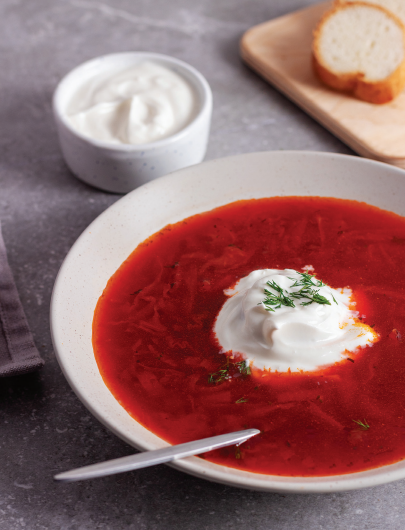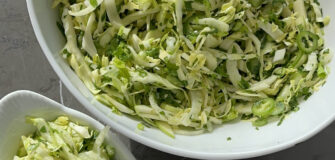DIRECTIONS
Get the tiniest head of green cabbage you can find. Slice it in half and save another half for the time you decide to make some sauerkraut.
Roast and grate 4 small beets.
Peel and quarter 3 medium potatoes.
Peel and grate 3 medium carrots.
Heat some neutral oil, like grapeseed or canola, in a large pot and drop the potatoes in. Let them get a bit of a tan and drop in the carrots. Stir from time to time to make sure they don’t burn.
Once they soften and brown a bit, fill the pot with boiling water, add a generous pinch of salt, and a whole peeled onion. Important: now is the time to add a pinch of sour salt. Sour salt is another name for citric acid (skip this step and end up with sad, brown borsch).
Next, add a heaping tablespoon of tomato paste. Drop in the grated beets, bring the borsch to a boil, then cover the pot and let it simmer for at least 30 minutes. I like to simmer for an hour.
While this is happening, slice the cabbage as thinly as humanly possible. Bring the borsch back to a boil and drop the cabbage in. Stir and turn the heat off immediately. This way the cabbage will retain some bite to it. Don’t let it turn into a mushy mess!
Fish out and discard the onion. Crush a clove of garlic into the pot.
Ladle borsch into a bowl, add some sour cream, and sprinkle with fresh dill.
Any borsch will taste better the next day.
If this does not sound like the borsch your grandma makes, I apologize. I am sure she is a wonderful lady and a great cook. Nevertheless, I stand by my borsch—as an artist, an omnivore, and a dual citizen.






























